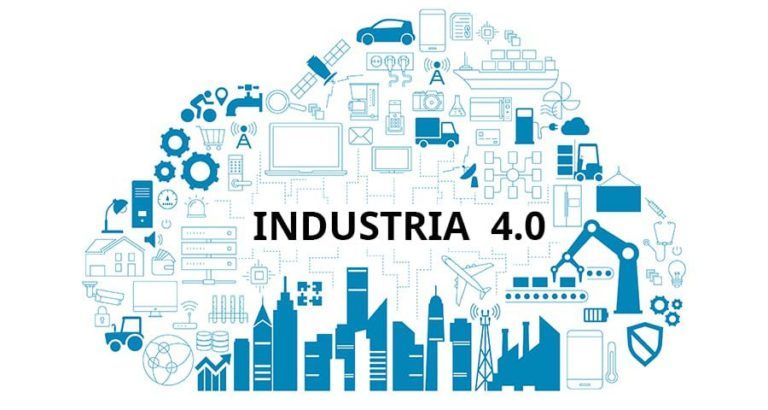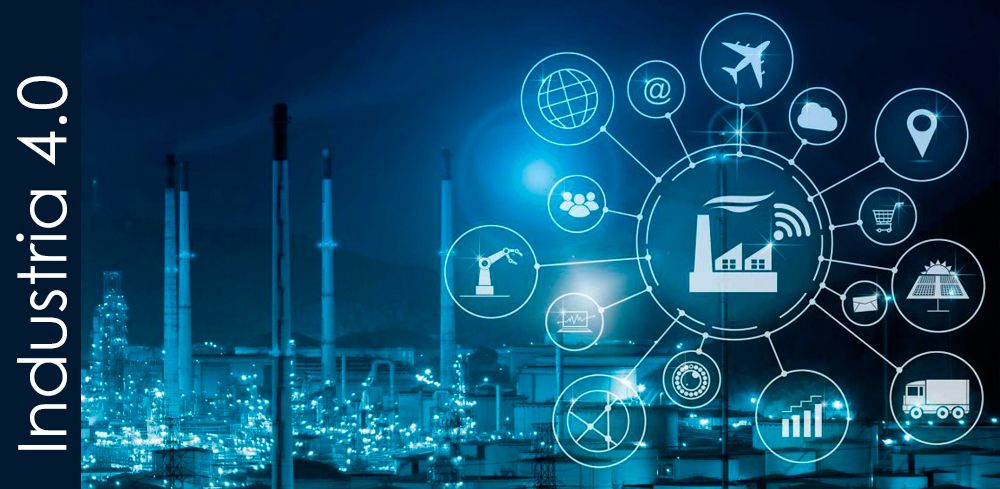The industry 4.0
We are in a stage of transformation in the way we manufacture products and goods thanks to digitalization. This transition is known as Industry 4.0, a concept born in Germany, is the name used to refer to the fourth industrial revolution, and mainly consists of interconnecting all parts of a company resulting in effective automation and a smarter company.
What is Industry 4.0?
Emerged with the aim of seeking an organization of all our productive means and all our company, the industry 4.0 consists of digitization of industry and all services related to the company, achieving a union between the virtual and real world.
Industrial revolutions.
1st Industrial Revolution:
It emerged in the mid-18th century and originated in England. This revolution generated economic, social, cultural and even environmental consequences.
The steam engine, whose fuel was coal, was the basis on which all development was based. Other industries that developed were the iron and steel industry and mining.
The First Industrial Revolution is considered a real turning point in the history of mankind, as its consequences can still be seen today.
2nd Industrial Revolution:
The Second Industrial Revolution began between 1850 and 1870 and lasted until 1914, coinciding with the outbreak of World War I. This time, industrial advances took place in France, Germany, Belgium, Japan and the United States. This time, industrial advances took place in France, Germany, Belgium, Japan and the United States.
At this time, new forms of energy began to appear, such as oil, which replaced coal, and electricity. We can also mention Watt's engine, turbines or the gas industry.
The modernization of the means of transportation was another important technological consequence.
3rd Industrial Revolution:
There is no exact date for its beginning, but it can be said that the Third Industrial Revolution began in the second half of the 20th century. This time, the leaders are the United States, Japan and European countries. This revolution is closely related to the concept of the information society.
This is because the Third Industrial Revolution is based on new information and communication technologies, especially with the emergence of the Internet. Never before have such high levels of interactivity and intercommunication been achieved. Similarly, the development of renewable energies, such as green electricity, is also part of this era.
4th Industrial Revolution (Industry 4.0):
The first time the Fourth Industrial Revolution was mentioned was in 2011, and we are currently living this revolution. The key element of the Fourth Industrial Revolution is innovation for greater adaptability to production needs and improved resource efficiency.
It is known as the industrial revolution 4.0 under the point of view of IBM (multinational company specialized in technological solutions) which indicates that it is the product of the synergic combination of operational technologies (OT) and information technologies (IT).
What can we highlight about the new Industry 4.0?
- Automation
- Connectivity
- Digital information
- Digital access to the customer and other users in less time
What advantages do we find in Industry 4.0?
- Optimization of quality levels.
- With more efficiency, there will be lower costs.
- Production times are reduced.
- Increased personnel safety as they are not exposed to so many hazardous production processes.
- Business competitiveness is greatly increased and a better response to the needs of each market is offered.
- Better care of the environment.
Disadvantages of Industry 4.0
- As technology advances, many companies run the risk of becoming outdated.
- Specialized personnel are required to control process automation.
- It has a very high initial investment cost, although in the medium/long term it can be recovered.
- If some companies adapt the Industry 4.0 concept and others do not, there will be a significant disadvantage for those that do not adopt this concept.
- It is highly dependent on technology, so if it fails or there is a problem, it must be solved immediately so as not to harm the production process.
- Technology must be kept up to date due to the rapid changes in technology.

A look into the future?
As Industry 4.0 continues to evolve, companies that are embracing new technologies have noticed the potential that the Fourth Industrial Revolution has brought. As a result, they are struggling to train their current workforce, as this fourth era of work will render many jobs obsolete and generate new trades.
We cannot know for sure how technology will evolve and when we will reach the fifth industrial revolution, what we do know is that at Binhex Systems Solutions, we offer the latest technology and the highest quality services for your company.
No dudes en Do not hesitate to contact us and we will advise you in the best possible way.